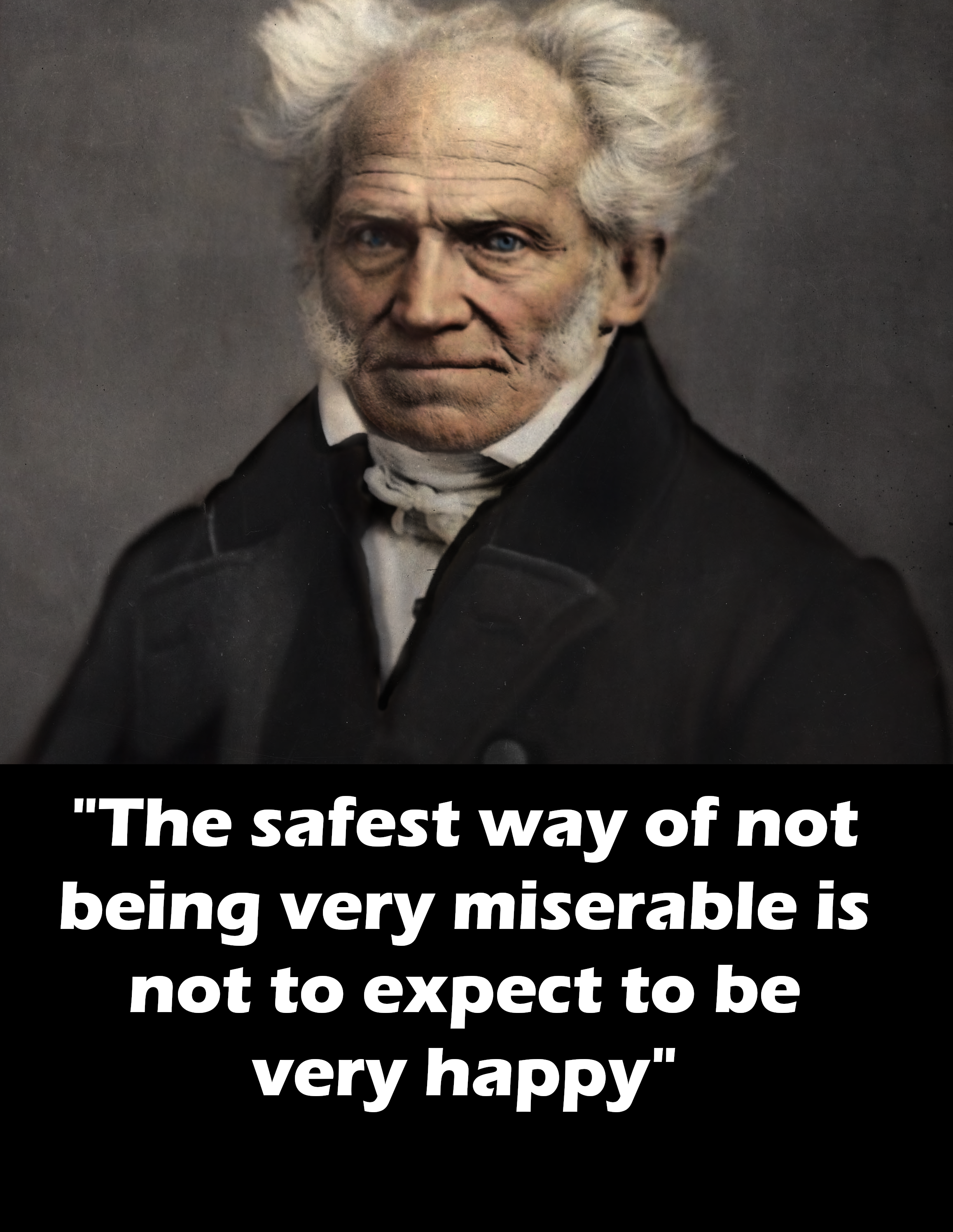
Large featured image, just so you get the message!
While reading through German philosopher Arthur Schopenhauer’s Counsels and Maxims, I came across this sentence: “The safest way of not being very miserable is not to expect to be very happy.” This statement by our happy German serves as the theme of this article, as well as the kindling that led to its inspiration. Is this statement by Schopenhauer pessimistic? That if we expect to be very happy we risk ourselves to be very miserable? Whether pessimistic or not, I ask is there any wisdom in this statement?
In evaluation, I think this statement by Schopenhauer implies that, whatever we desire – desiring being a positive feeling – has the potential to condition opposing negative feelings; especially those of disappointment. Kind of similar to Newton’s third law of motion: ‘every action has an equal and opposite reaction’, but instead of physics this is applied to the desiring mind. The more strongly we desire, the same will be for the disappointment mirrored in proportion to it. In other words, the more we hope for something the greater the disappointment will be should we not get it.
If we expected our holiday destinations to be picture book perfect like it was marketed on that brochure, then we bought into an ideal. This ideal we have voluntarily brought into our minds now serves as the object of which our expectations are dependent on and anything that does not live up to that ideal in our imagination risks us feeling wanting.
If I expect to be very happy in a much looked forward to excursion that was planned many weeks prior and upon actually arriving at the destination, getting off that minibus and living that anticipated experience found it instead to be mediocre – not living up to the hyped up ideal of my prior expectation – then very disappointed would my response be.
What prepped the conditions for major disappointment and dissatisfaction and why so major? because I simply expected in my imagination to be very happy from this venture. On the other hand, trivial desires are more easily overcome and don’t burden our minds as much. So something I don’t find to be very important is let go with greater ease than compared to something of greater significance.
Our expectations conceal potential sufferings ready to spring into action should the conditions of our expectations not be met. Failure to live up to much wished for positive expectations easily transform into their contrary negatives – also the more expectations we have, the multiplication will be for potential disappointments.
Hope raises you so high only to be dashed against the rocks of reality. Our spirits are lifted by some indication for a possible change for the better – then we witness the contrary reality before us and our spirits crash. Be mindful that hope comes with the risk of backfiring.

